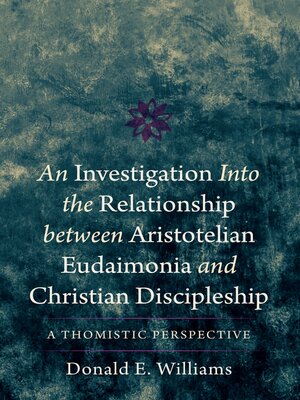An Investigation into the Relationship between Aristotelian Eudaimonia and Christian Discipleship
ebook ∣ A Thomistic Perspective
By Donald E. Williams

Sign up to save your library
With an OverDrive account, you can save your favorite libraries for at-a-glance information about availability. Find out more about OverDrive accounts.
Find this title in Libby, the library reading app by OverDrive.



Search for a digital library with this title
Title found at these libraries:
| Loading... |
The quest for happiness, human flourishing, and well-being is one of the most universal, primeval desires of humankind. It is a natural desire to care for one's personal interest, to seek some measure of flourishing. In two of his great works, Thomas Aquinas argues that perfect happiness is not possible in this life. Humankind's quest for happiness is found in the contemplation of the truth which begins in this life but will be consummated in the Beatific Vision when we shall see Christ face to face.
In the second part of his imminent work The Summa Theologica, Thomas Aquinas seeks to integrate Aristotelian philosophy with Christian theology. The cornerstone of his theoretical system is eudaimonia, human flourishing, well-being, or happiness. Aquinas ultimately concludes that perfect happiness (beatitude) cannot be achieved in this life. However, imperfect happiness is possible.
For Aquinas, humankind's happiness (eudaimonia) is realized in the sublime contemplation of the truth. This quest for wisdom and understanding is specific to humankind, as opposed to other creatures. Aquinas asserts that the perfect discernment, the realization of truth will occur in the Beatific Vision when we see God face to face.






